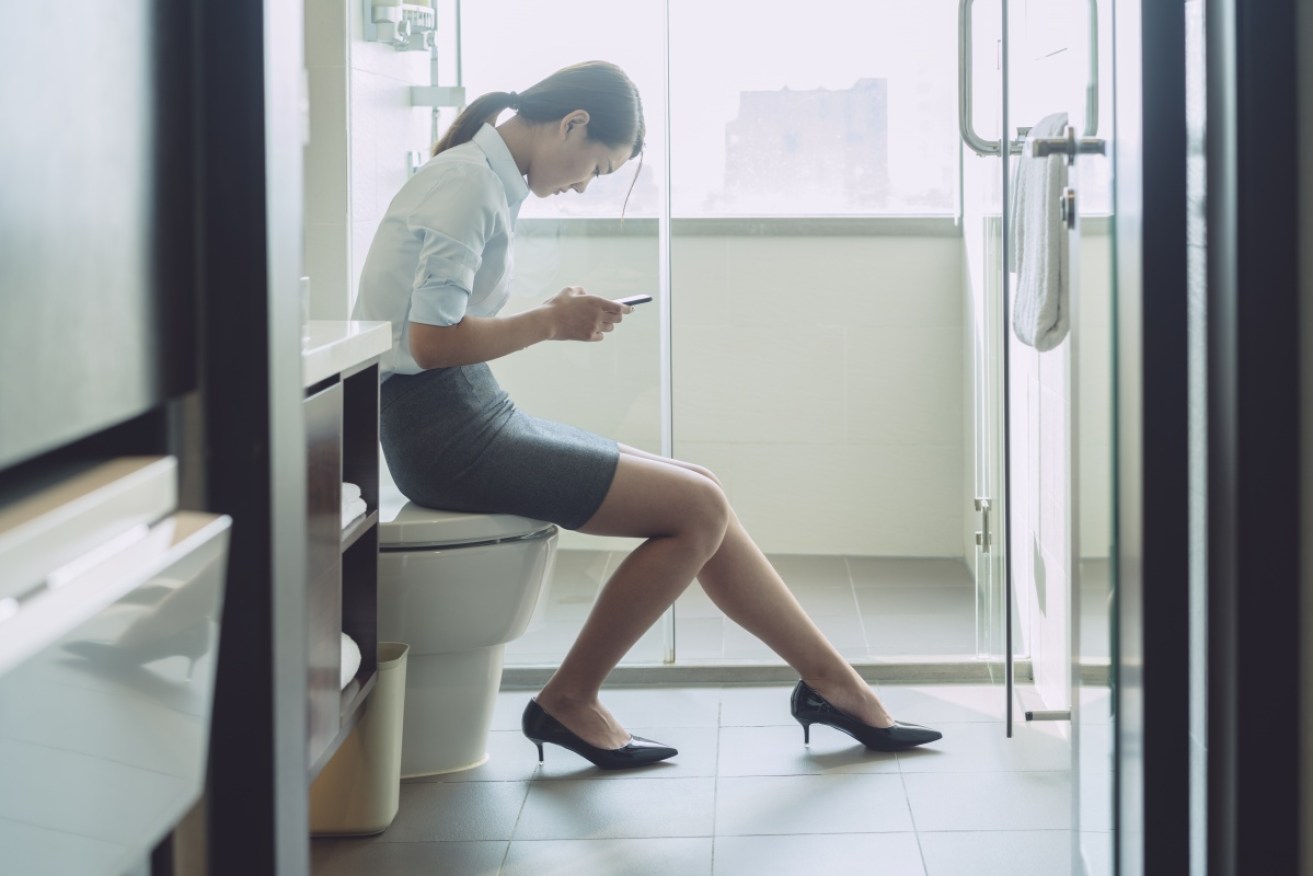Leaked information: How often should we pee?


How often should we going to the toilet? Photo: Getty
If you find yourself making frequent trips to the office bathroom or scoping out all of the public toilets in your neighbourhood, are you peeing too much?
The New Daily has asked two urologists to answer your busting questions.
How many times should we urinate each day?
Unless you constantly walk around with a water bottle in hand, a “normal, everyday person” should pee every four hours, Urological Society of Australia and New Zealand spokesperson and University of Wollongong Associate Professor Peter Chin told The New Daily.
This equates to about six trips to the toilet in a 24-hour day, but if you’re still worried about the numbers there are other factors to consider, including how much you drink, what you drink, how much urine you produce and your bladder capacity.

Want to go more often? The Guggenheim has a solid gold, fully functional toilet. Photo: Guggenheim Museum
“The average, normal person will pee every four hours or so and pass around 400 millilitres of urine, but there are other factors such as the size of your bladder, what you drink, what your kidneys produce and how well you store that urine,” Professor Chin said.
Melbourne Urology Group urologist Lih Ming Wong told The New Daily any more than eight times per day in a 24-hour period or more than every two hours was defined as “urinary frequency”.
However, Dr Wong said the number of times you go to the toilet and how bothered you are by frequency is a subjective experience.
“Some people go a lot and it doesn’t worry them, but if you have blood in the urine, burning or stinging with the urine or there are signs of incontinence, you should see a doctor and initiate further investigation to find underlying causes,” Dr Wong said.
What causes us to pee more often?
Outside of prescription use and medical conditions, one of the most common causes of urinating more often is drinking tea, coffee, anything with caffeine and alcohol consumption.
Dr Wong said he had met a number of patients who couldn’t explain their frequent trips to the toilet, until they were asked about how much coffee or tea they were consuming.

Six coffees a day will get you going in more ways than one. Photo: Getty
He said sometimes the answer was “six cups of coffee per day”.
“Caffeine is a diuretic and increases your urine production,” the Melbourne-based urologist said. “What you drink matters and caffeine and alcohol can create a big variation of normal urination.”
What can help us pee less?
There are medications, and surgical procedures to stretch the bladder, but many urologists recommend retraining the bladder.
Dr Wong said “bladder retraining” was a fancy word for teaching someone to hold on for longer, but recommended seeing a “coach” in the form of a pelvic floor physiotherapist or urologist.
“Retraining the bladder is complicated and we usually do this for people who go to the toilet a lot, but can’t find the underlying issue,” Dr Wong said.
Professor Chin said many people often formed bad habits in childhood when told by a parent to go the bathroom when it was convenient, rather than going when the bladder was full.
You can train your muscles to do extraordinary things, but you can also train your muscles to do bad things as well”
Professor Chin said the average bladder could hold up to 400 mls, but many felt the urge to go at 50, 100 or 150 mls.
“People will say they have a 10 cent bladder, but that’s because you’ve trained your bladder to go when you can actually hold a lot more.”
Is holding on to go the bathroom a bad idea?
It’s okay to hold on occasionally when on a bus trip, or until the end of the movie, but It can be damaging if done on a regular basis.
Dr Wong said truck drivers and nurses were among the culprits holding “on and on”, running the risk of stretching the bladder and eventually losing muscle elasticity.
“If you overstretch your bladder it can stop emptying properly and a volume of urine is left behind,” Dr Wong said.
“If this goes on for a long period of time, you risk having a lot of urine being left in your bladder, increasing the risk of urinary tract infection, bladder stones and putting pressure on the kidneys.”
Are we drinking too much water?
It’s unlikely, according to Professor Chin who said many people in today’s society had learned to suppress their thirst reflex.
He warned against people, such as the elderly, trying to control their waterworks by reducing fluid consumption, as they risked damaging the kidneys, which that can stop functioning and produce even more urine.
“Controlling your fluid to stop yourself from going is not a long-term management plan. If you have to go to a wedding and don’t want to go to the toilet or there’s a movie, okay, but it’s better to increase the capacity than reduce input.”








